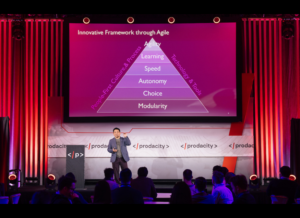
Verticals
Related Articles
-
StateRAMP: Recognizing the Importance of Framework Harmonization
StateRAMP’s proactive steps to embrace framework harmonization are helping CSPs and State and Local Governments move towards a more secure digital future.
Join Fellow Change Agents and Innovators at Prodacity 2025
The agenda for Prodacity 2025 is packed with expert-led sessions and practical insights tailored to give attendees a complete perspective on effectively implementing continuous delivery.




